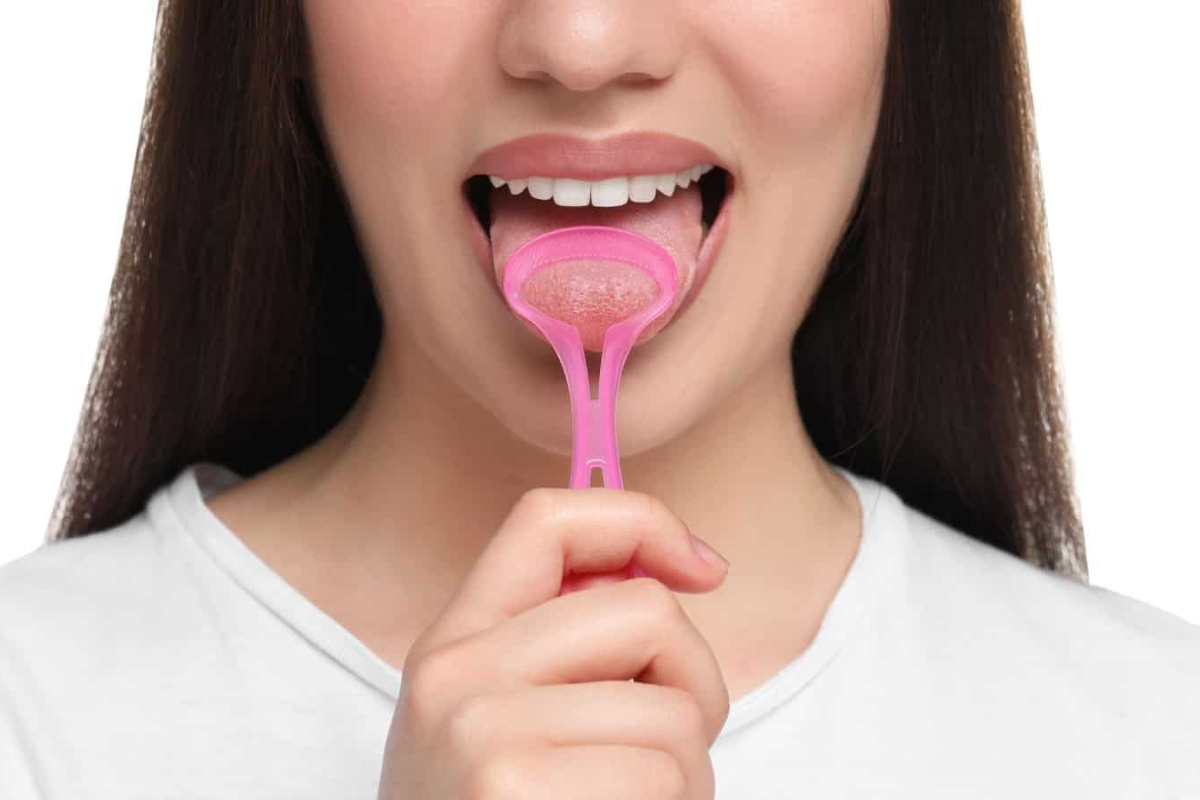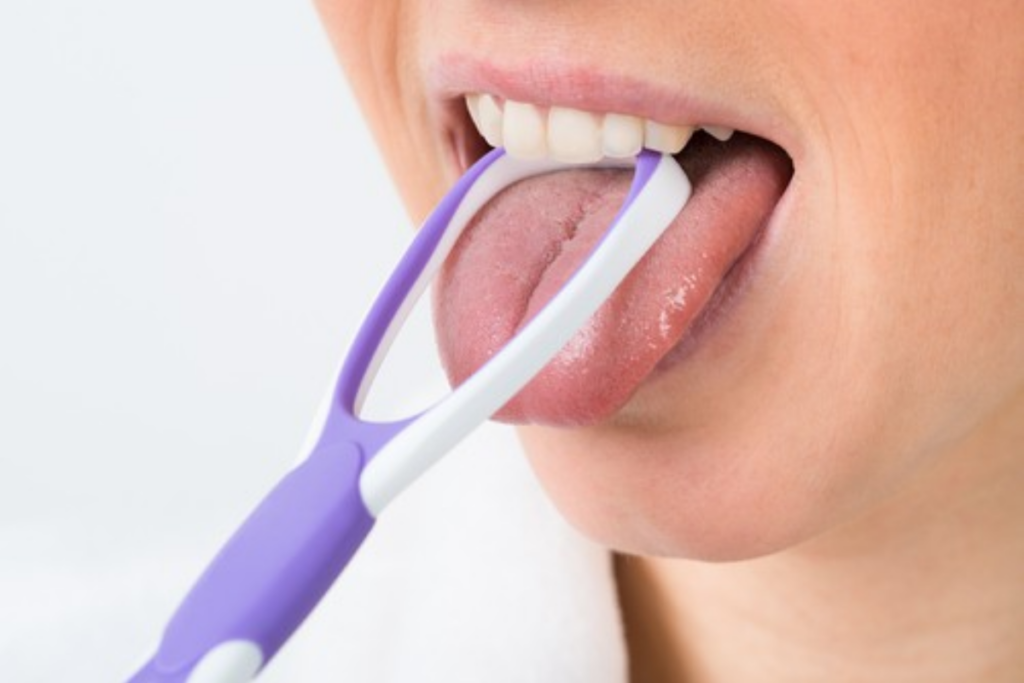We are not a registered Medicare/Medicaid Provider
Why Brushing Your Tongue is Important for Oral Health

Maintaining good oral hygiene is crucial for overall health, and most of us are well-versed in the importance of brushing and flossing our teeth. However, one aspect of oral care that often goes overlooked is tongue brushing. The tongue, despite being an integral part of the mouth, can harbor bacteria and food particles that contribute to bad breath, dental issues, and overall health problems. In this comprehensive guide, we will explore why brushing your tongue is essential for oral health, how to do it properly, and the benefits you can expect from this simple yet effective practice.
Understanding the Role of the Tongue in Oral Health
Anatomy of the Tongue
The tongue is a muscular organ covered with tiny bumps called papillae, which are home to taste buds and other sensory cells. These papillae create a rough surface on the tongue, providing ample space for bacteria, food particles, and dead cells to accumulate.
How the Tongue Affects Oral Health
Because the tongue’s surface can harbor bacteria, it plays a significant role in oral health. When these bacteria are not removed, they can contribute to various oral health problems, including:
- Bad Breath (Halitosis): Bacteria on the tongue can produce sulfur compounds, leading to unpleasant odors.
- Tooth Decay: Bacteria can spread from the tongue to the teeth, contributing to plaque formation and cavities.
- Gum Disease: Harmful bacteria can migrate from the tongue to the gums, causing inflammation and gum disease.
- Altered Taste: A buildup of debris on the tongue can affect taste sensation, making food less enjoyable.

The Importance of Brushing Your Tongue
Reducing Bad Breath
One of the most immediate and noticeable benefits of brushing your tongue is the reduction of bad breath. Halitosis, or bad breath, is often caused by the accumulation of bacteria on the tongue. These bacteria produce volatile sulfur compounds (VSCs) that emit foul odors. Regular tongue brushing helps remove these bacteria and the compounds they produce, leading to fresher breath.
Preventing Tooth Decay and Gum Disease
Bacteria on the tongue can easily transfer to your teeth and gums, where they can cause plaque buildup, tooth decay, and gum disease. Brushing your tongue reduces the overall bacterial load in your mouth, which helps protect your teeth and gums from these common dental issues.
Enhancing Taste Sensation
A clean tongue can improve your sense of taste. When the tongue is coated with bacteria and debris, it can dull your taste buds, making food less flavorful. Regularly brushing your tongue can remove this coating, allowing you to enjoy the flavors of your food fully.
Improving Overall Oral Hygiene
Oral hygiene is not just about clean teeth and gums; it’s about maintaining a healthy mouth overall. Including tongue brushing in your daily routine ensures that your entire mouth is clean, which can boost your confidence and overall well-being.
How to Brush Your Tongue Properly
Choosing the Right Tools
There are a few tools you can use to brush your tongue effectively:
- Toothbrush: Many people use their regular toothbrush to clean their tongue. Opt for a toothbrush with soft bristles to avoid irritation.
- Tongue Scraper: A tongue scraper is specifically designed to clean the tongue. It typically has a flat or slightly curved edge that you use to scrape the surface of your tongue.
- Tongue Brush: Some brushes are designed specifically for the tongue, with a shape and bristle arrangement optimized for this purpose.
Step-by-Step Guide to Tongue Brushing
- Prepare Your Tools: Choose your preferred tool (toothbrush, tongue scraper, or tongue brush) and make sure it is clean.
- Apply Toothpaste: If using a toothbrush, you can apply a small amount of toothpaste to it. This isn’t necessary with a tongue scraper or tongue brush.
- Brush/Scrape Your Tongue:
- Start at the back of your tongue and work your way forward. Be gentle to avoid triggering your gag reflex.
- Use gentle pressure to avoid irritation or damage to the tongue’s surface.
- If using a toothbrush, brush in a circular or sweeping motion. If using a scraper, gently drag it from the back to the front of your tongue.
- Rinse Thoroughly: Rinse your mouth with water to remove any loosened debris and bacteria. Also, rinse your tool to keep it clean for future use.
- Repeat Daily: Incorporate tongue brushing into your daily oral hygiene routine, ideally after brushing your teeth.
Common Misconceptions About Tongue Brushing
Myth: Mouthwash is Enough
While mouthwash can help reduce bacteria in the mouth, it cannot replace the physical action of brushing or scraping the tongue. Mouthwash may leave your mouth feeling fresh temporarily, but it does not remove the bacteria and debris that accumulate on the tongue’s surface.
Myth: Tongue Brushing is Unnecessary if You Brush and Floss Regularly
Brushing and flossing are essential for maintaining healthy teeth and gums, but they do not address the bacteria and debris that collect on the tongue. Including tongue brushing in your routine is necessary for a comprehensive approach to oral hygiene.
Myth: Tongue Brushing is Too Difficult or Uncomfortable
Tongue brushing may feel strange at first, but with regular practice, it becomes a quick and easy part of your routine. Starting gently and gradually increasing pressure can help you get used to the sensation.
The Science Behind Tongue Brushing
Bacterial Colonization on the Tongue
Research has shown that the tongue harbors a diverse community of bacteria. Some of these bacteria are beneficial, but many can be harmful if allowed to accumulate. Regular tongue brushing disrupts the colonization of harmful bacteria, reducing their numbers and the risk of oral health problems.
Impact on Oral Health
Several studies have demonstrated the benefits of tongue brushing for oral health. For example, a study published in the Journal of Periodontology found that tongue brushing, in combination with tooth brushing and flossing, significantly reduces plaque and gingivitis compared to tooth brushing and flossing alone.
Effects on Halitosis
A study in the International Journal of Dental Hygiene found that tongue cleaning is effective in reducing volatile sulfur compounds (VSCs), which are responsible for bad breath. Participants who brushed their tongues experienced a notable reduction in VSC levels and reported fresher breath.
Integrating Tongue Brushing into Your Oral Care Routine
Establishing a Routine
To make tongue brushing a regular habit, integrate it into your existing oral care routine. Brush your tongue immediately after brushing and flossing your teeth. Consistency is key to reaping the benefits of this practice.
Educating Others
Spread awareness about the importance of tongue brushing among family and friends. Educating children about proper oral hygiene, including tongue brushing, sets them up for a lifetime of good dental habits.
Monitoring Your Oral Health
Pay attention to changes in your oral health as you incorporate tongue brushing into your routine. Notice improvements in breath freshness, taste sensation, and overall mouth cleanliness. Regular dental check-ups can also help monitor the positive effects of this practice.
Brushing your tongue is a simple yet highly effective way to enhance your oral hygiene routine. It helps reduce bad breath, prevent tooth decay and gum disease, and improve taste sensation. By understanding the importance of tongue brushing and incorporating it into your daily oral care, you can achieve a healthier mouth and enjoy the benefits of fresher breath and better overall oral health.
Incorporate tongue brushing into your daily routine today, and experience the positive changes it brings to your oral hygiene and overall well-being. Remember, a clean tongue is a key component of a healthy mouth, so don’t neglect this important practice in your quest for optimal oral health.

